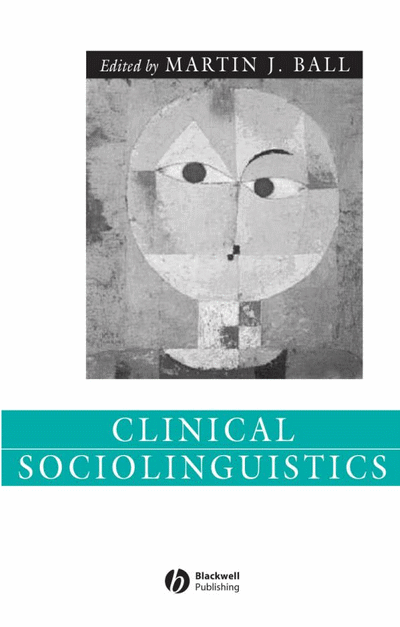
BOOKS
BOOKS

2020
Language in the Trump Era: Scandals and EmergenciesLondon
Cambridge University Press.
Edited by:
-Janet McIntosh, Brandeis University, Massachusetts,
-Norma MendozaDenton, University of California, Los Angeles
Early in his campaign, Donald Trump boasted that 'I know words. I have the best words', yet despite these assurances, his speech style has sown conflict even as it has powered his meteoric rise. If the Trump era feels like a political crisis to many, it is also a linguistic one. Trump has repeatedly alarmed people around the world while exciting his fan-base with his unprecedented rhetorical style, shock-tweeting, and weaponized words. Using many detailed examples, this fascinating and highly topical book reveals how Trump's rallying cries, boasts, accusations, and mockery enlist many of his supporters into his alternate reality. From Trump's relationship to the truth to his use of gesture to the anti-immigrant tenor of his language, it illuminates the less obvious mechanisms by which language in the Trump era has widened divisions along lines of class, gender, race, international relations, and even the sense of truth itself.

2008
Homegirls: Language and Cultural Practice among Latina Youth Gangs. London: Blackwell.
In this ground-breaking new book on the Norteña and Sureña (North/South) youth gang dynamic, cultural anthropologist and linguist Norma Mendoza-Denton looks at the daily lives of young Latinas and their innovative use of speech, bodily practices, and symbolic exchanges that signal their gang affiliations and ideologies. Her engrossing ethnographic and sociolinguistic study reveals the connection of language behavior and other symbolic practices among Latina gang girls in California,and their connections to larger social processes of nationalism,racial/ethnic consciousness, and gender identity.
~Google Books
SELECTED CHAPTERS

2018 (in press)
Social Capital in the Production and Perception of Fine Phonetic Detail in Berlin. (2nd author, with Stefanie Jannedy and Melanie Weirich). In Schneider, Britta, Theresa Heyd and Ferdinand voin Mengden The Sociolinguistic Economy of Berlin.Humboldt University Press. (Percentage Effort: 33%)
2016
Gangs on YouTube: Localism, Variation and Music Fandom. In Alim, S., J.R. Rickford and A. Ball, Raciolinguistics. Palo Alto: Stanford University Press.
2012
Speaker-Related Variation – Sociophonetic Factors. (2nd author, with Gerry Docherty) in Cohn, A.C., C. Fougeron & M. Huffman. The Oxford Handbook of Laboratory Phonology.
2010c
Language and Social Meaning in Bilingual Mexico and the United States (1st author, with Bryan Gordon) in Diaz-Campos, Manuel (ed.) Handbook of Spanish Sociolinguistics. Malden, MA: Wiley-Blackwell
2010b
Individuals and Communities. In Johnstone, Barbara, Paul Kerswill and Ruth Wodak. The Sage Handbook of Sociolinguistics. London:Sage.

2010a
Field Methods in Linguistic Anthropology. In Brian Salzman and Patricia Rice. (eds.), Thinking Anthropologically, 3rd Edition.
2009
Two Languages, Two Identities? (1st author, with Dana Osborne) In Llamas, Carmen and Dominic Watt (eds.) Language and Identities, Edinburgh: Edinburgh University Press.
2007b
Sociolinguistic Extensions of Exemplar Theory. In Cole, J., and Hualde, J. (eds.) Laboratory Phonology 9. Berlin: Mouton de Gruyter. (pp. 443-454)

2007a
Homegirls Remembered: Memorializing Practices Linking Language and Materiality among California Latina/o Gang-Involved Youth. In Hodkinson, P., and W. Deicke (ed.) Youth Cultures: Scenes, Subcultures, and Tribes. London: Routledge. (pp. 123-147)

2005
Gesture and Discourse Markers in the Study of Language and Culture. (with Nicole Taylor). In Ball, Martin (ed.) The Handbook of Clinical Sociolinguistics. London: Blackwell
2004
The Anguish of Normative Gender. In Bucholtz, Mary (ed.), Language and Woman's Place II: Text and Commentaries, 2nd ed. Oxford University Press. (pp. 343-355)
2003
Probabilistic Sociolinguistics (1st author, with Jennifer Hay and Stefanie Jannedy). In Bod, Hay, and Jannedy (eds.) Probability Theory in Linguistics. MIT Press. (pp. 98-138)
2001b
Style. In Duranti, A. (ed.) Key Terms in Language and Culture. London: Blackwell. (Revision of 2000)

2001a
Language and Identity. In Trudgill, Peter, Jack Chambers and Natalie Schilling-Estes (eds.) Handbook of Variation Theory. Oxford: Blackwell Publishers. (pp. 475-499)
1999b
Turn-initial “No”: Collaborative Opposition Among Latina Adolescents. In Bucholtz, Liang and Sutton (eds.) Reinventing Identities: From Category to Practice in Language and Gender. Oxford University Press. (pp. 273-292)

1999a
Fighting Words: Latina Girls, Gangs, and Language Attitudes. In Galindo and Gonzalez-Vasquez (eds.), Speaking Chicana. University of Arizona Press. (pp. 39-56)

1995b
“Oyes Tú”: Linguistic Stereotyping as Stance and Alliance. In Loftin and Silberman (eds.), SALSA II: Proceedings of the Second Annual Symposium About Language and Society -- Austin. Austin: Department of Linguistics, University of Texas.
1995a
Pregnant Pauses: Silence and Authority in the Hill-Thomas Hearings.
In Bucholtz and Hall (eds.), Gender Articulated: Language and the Culturally Constructed Self. Routledge: New York. (pp. 51-66)
1994
“They Speak More Caucasian”: Generational Differences in the Speech of Japanese-Americans (1st author, with Melissa Iwai). In Queen and Barrett (eds.), SALSA I: Proceedings of the First Annual Symposium About Language and Society -- Austin. Austin: Department of Linguistics, University of Texas. (pp. 58-67)

1993
Variation in Gap Length in the Anita Hill/Clarence Thomas Cross Examination Discourse. In Hall and Bucholtz (eds.). Locating Power: Proceedings of the Berkeley Women and Language Conference. Berkeley: University of California Press. (pp. 404-408)










